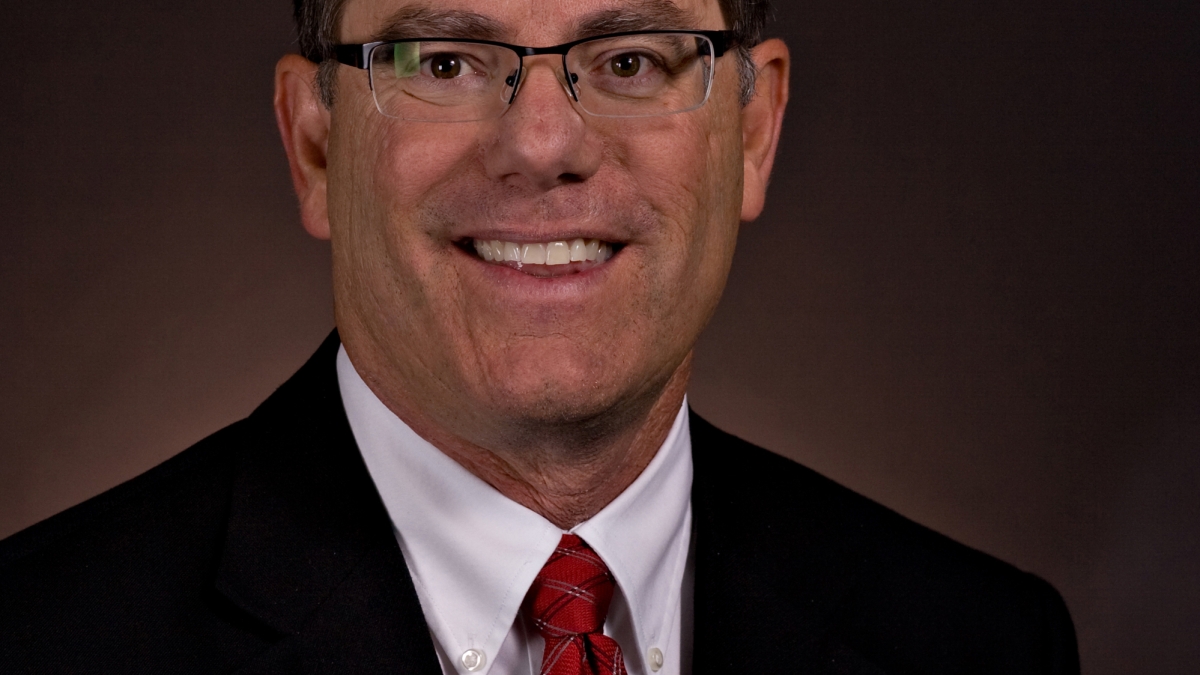Kenney named dean of social sciences

Patrick Kenney, professor of political science, founding director of the School of Politics and Global Studies, and director of The Institute for Social Science Research, has been appointed dean of social sciences in the College of Liberal Arts and Sciences at Arizona State University.
Kenney’s appointment is effective May 14, 2012, and he assumes the leadership role held by Linda Lederman, a professor of health communication in the Hugh Downs School of Human Communications, who has returned to the faculty after five years of service as dean.
“The social sciences at ASU play an integral role, with partners in the humanities, natural sciences, fine arts and professional programs, in advancing the goals of the New American University,” said ASU President Michael M. Crow. “The social sciences – in scholarship, in student learning and in civic engagement – will prove key to advancing the development of solutions to the most complex and chronic problems now facing our communities.”
“Professor Lederman has provided leadership to the division since 2007," said Elizabeth D. Capaldi, provost and executive vice president of the university. "She guided ASU’s social sciences’ schools, centers and programs through significant growth and change. We thank her for her dedication and service. Patrick Kenney will now build on social sciences’ strengths to advance scholarship and educational activities and take social sciences to the next level.”
Kenney is a political scientist whose research focuses on campaigns, elections, and voting behavior. He joined ASU’s Department of Political Science in 1986 and was named chair in 2002. Under his leadership, ASU’s School of Political and Global Studies was founded in 2010, fusing and redefining the study of politics, philosophy, culture, law, science and global engagement.
“Patrick Kenney has more than 10 years of leadership and 20 years of scholarship in social science research at ASU. His record in advancing and embracing diversity in all its forms, including intellectually and across disciplines, and open communication style make him ideal for this position,” said vice provost and dean Robert E. Page, Jr., the founding director of the School of Life Sciences, ASU’s first academic unit to embrace an integrated, transdisciplinary research endeavor.
Said Kenney, “The central thread running through all premier social science units is creative and nationally recognized research faculty. The social science faculty at ASU are talented, productive, theoretically and methodologically diverse, and are engaged in a wide range of research orientations focused on a broad set of important puzzles and problems facing the nation and the global community.
“Social science programs are in high demand by students at ASU and faculty in the social sciences work diligently each day to meet student needs in face-to-face classrooms and in the on-line environment,” noted Kenney. “I am excited about the possibility of working with the skilled faculty, staff and students in the various social science programs at ASU.”
Kenney received his bachelor's degree, master's in public administration and his doctorate from the University of Iowa. He has authored and co-authored articles in the American Political Science Review, American Journal of Political Science, Political Behavior, and the Journal of Politics. He has also co-authored two books with ASU colleague Kim Fridkin, “The Spectacle of U.S. Senate Campaigns” and “No-Holds Barred: Negativity in U.S. Senate Campaigns.”
The College of Liberal Arts and Sciences was established in 1953 and is the largest college on the ASU campus, with more than 21,000 students and 753 tenured faculty. In his role as dean of social sciences, Kenney will oversee 24 of liberal arts’ 52 schools, institutes or centers.
Reporting to Kenney will be School of Geographical Science and Urban Planning, Hugh Downs School of Human Communication, School of Human Evolution and Social Change, School of Politics and Global Studies, School of Social and Family Dynamics, the School of Transborder Studies and School of Social Transformation, which includes African and African American Studies, Asian Pacific American Studies, Justice and Social Inquiry and Women and Gender Studies.
Centers and institutes he will advise are the American Indian Policy Institute, Center for Bioarchaeological Research, Center for Digital Antiquity, Center for Global Health, Center for Indian Education, Center for Nanotechnology in Society, Center for Population Dynamics, Center for the study of Institutional Diversity, Complex Adaptive Systems Initiative (CASI), Consortium for Science, Policy and Outcomes, Consortium for Strategic Communication, Family and Human Dynamics Research Institute, GeoDa Center for Geospatial Analysis and Computation, Institute of Human Origins, Mathematical, Computational and Modeling Sciences Center, The Melikian Center: Russian, Eurasian and East European Studies Center, and the North American Center for Transborder Studies.
In addition, Kenney will provide guidance for two College of Liberal Arts and Sciences departments, Aerospace Studies and Military Science, and programs: American Indian Studies and Naval Science.